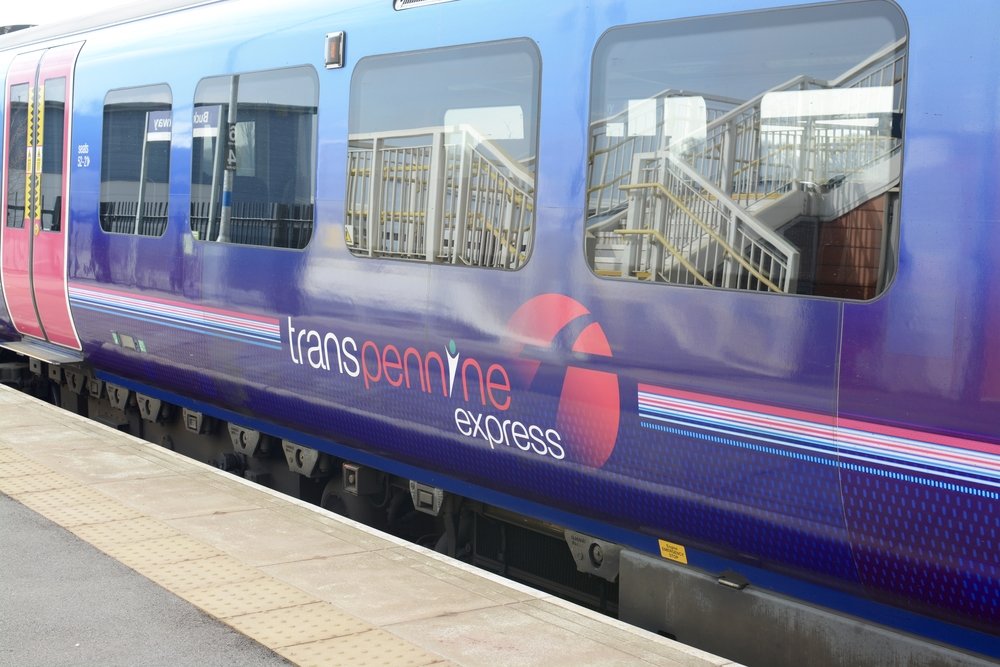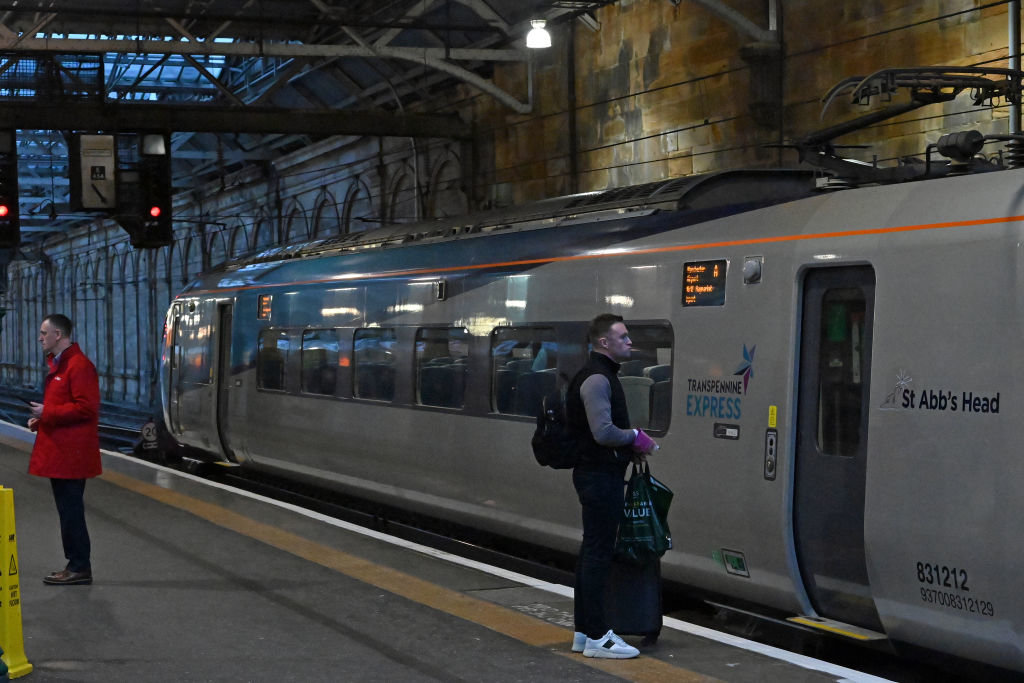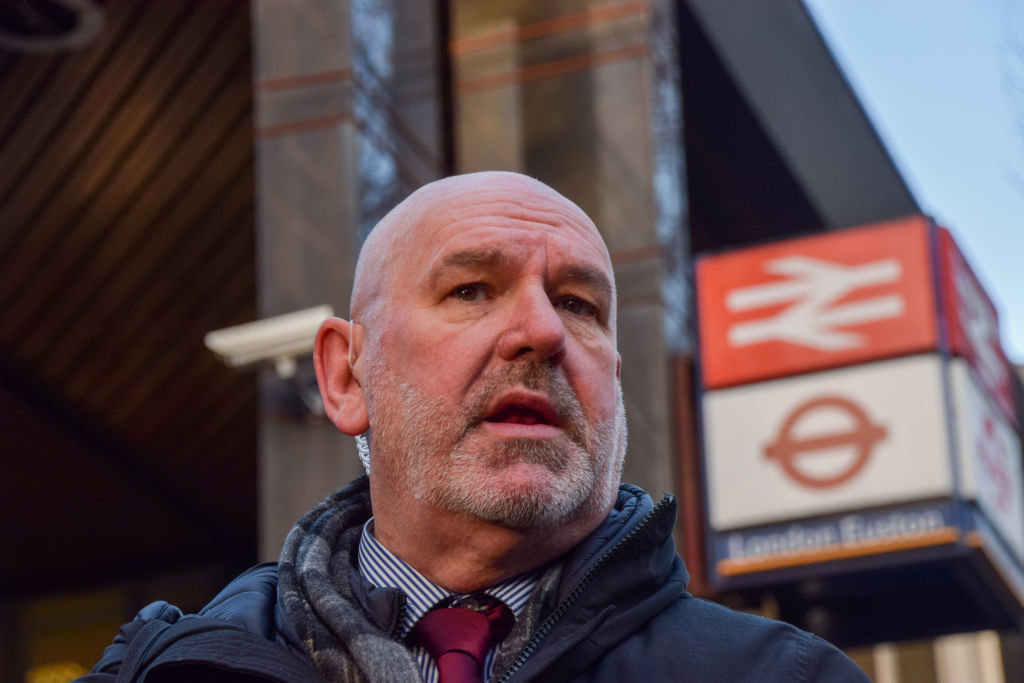Comment
Transpennine Express goes into state control: industry reacts
Noah Bovenizer finds out how industry, politicians, and unions have reacted to news that the franchise is to be controlled by the UK DfT under the operator of last resort.

TransPennine Express has been brought under the control of the DfT. Credit: tornadoflight/Shutterstock
Politicians, industry, and union leaders have been reacting to the announcement that Transpennine Express (TPE) will be brought into state control following months of cancellation issues.
The move was announced by Transport Secretary Mark Harper on Tuesday 11 May, meaning that the service will be taken into an operator of last resort by the Department for Transport (DfT) when the current contract comes to an end on 28 May 2023.
Harper highlighted the importance of passenger experience in his decision but also took the chance to blame the ongoing rail worker strikes for some of the company’s struggles.
“This is not a silver bullet and will not instantaneously fix a number of challenges being faced, including ASLEF’s actions, which are preventing Transpennine Express from being able to run a full service – once again highlighting why it’s so important that the railways move to a 7-day working week,” Harper said in a statement.
This is not a silver bullet and will not instantaneously fix a number of challenges being faced.
Firstgroup, the parent company of Transpennine Express, said it was disappointed by the decision not to continue the contract and similarly blamed industrial relations issues for its ongoing issues.
“Our team have worked extremely hard to improve services, including by recruiting and training more drivers than ever before," said Firstroup CEO Graham Sutherland.
“We have also worked closely with the DfT and Transport for the North on an agreed recovery plan as well as an improved offer on overtime working for our drivers.”
Politicians welcome the decision
Mayor of West Yorkshire Tracy Brabin has been one of the most vocal proponents for the move, describing the decision as “absolutely right.”
“We’ve been urging the government to act for almost a year, as delays and cancellations have damaged our economy and subjected commuters in the North to sheer misery," Brabin said
“This is a victory for Northern Mayors who rallied together to hold Transpennine Express and Rishi Sunak’s government to account on this issue. We hope this allows an opportunity to reset relationships with staff who have taken the brunt of operator failings, and look forward to hearing how the new operator intends to improve services."
We hope this allows an opportunity to reset relationships with staff who have taken the brunt of operator failings.
Harper and FirstGroup’s blame of striking workers for Transpennine’s struggle has been criticised as misleading by many, including West Lancashire Labour MP Ashley Dalton who tweeted that the ASLEF union’s responsibility was to its members and not to “accommodate the chronic underfunding and mismanagement of services.”

A Transpennine Express train prepares for departure at Edinburgh Waverley station. Credit: Ken Jack/Getty Images
Speaking in the House of Commons, Shadow Secretary of State for Transport Louise Haigh highlighted the historic failures of Transpennine Express.
"This operator has broken records for cancellations. Almost one in five services last year did not run and fewer than half the services were on time. It has been an issue not just for the last few months, as Ministers claim, but for years," said Haigh.
Seven years ago, TransPennine Express had exactly the same staff shortages it suffers from today.
"Seven years ago – well before Covid-19 – TransPennine Express had exactly the same staff shortages it suffers from today. It failed to address the issues that passengers are still experiencing. That it managed to keep this contract for so long is extraordinary."
Industry bodies respond
Responding to the news, Anthony Smith, CEO of the independent watchdog Transport Focus, highlighted passenger's dissatisfaction with the operator's services.
“TransPennine Express passengers have endured an unacceptable service for too long. In our latest survey, TransPennine Express was rated the joint worst-performing train operator and just 67% of passengers were satisfied with how punctual their journey was," he said.
“Whichever organisation runs TransPennine Express rail services, passengers will want to see a much more reliable service. It’s clear that passengers deserve better, and the operator needs to take action to improve performance and build back passenger trust.”
It’s clear that passengers deserve better, and the operator needs to take action to improve performance and build back passenger trust.
Dominic Booth, CEO of Transport UK (previously known as Abellio), acknowledged the need to make changes but remains sceptical that the current solution is the best.
“As a northerner myself, I fully recognise that the Government had to take radical action regarding TransPennine Express," he said in a statement.
"But there are better options for the customer and for the taxpayer than the operator of last resort, both in terms of service reliability and cost-effectiveness”.
To achieve the performance levels passengers expect and deserve, there is a need for a resetting of the operation.
Lord McLoughlin, chair of Transport for the North (TfN), said that the industry association welcomes the decision.
"The TfN Board’s position on this issue has been clear for some considerable time – that services need to significantly improve," he said.
"While we have seen some improvements over recent months, to achieve the performance levels passengers expect and deserve, and that the northern economy needs, there is a need for a resetting of the operation.
"We will now look forward positively to discussing with our members and working with the government to ensure the best way to achieve a service that meets the expectations of those living and working in the north.”
Union voices refute the blame
Though Harper acknowledged the issues caused by Transpennine Express and its cancellation rate being the worst in the UK, he has continuously sought to put some of the blame for the company’s issues on the ongoing dispute with trade unions and the subsequent industrial action that has often led to limited services on strike days.
The ASLEF union, which was specifically cited by Harper in his announcement of Transpennine Express’ future, responded to his claim that the union was preventing Transpennine Express from being able to run a full service by saying that he knows “full well” that it is not to blame.
ASLEF’s general secretary Mick Whelan said that the company had “paid the price” for its management’s “confrontational approach.”
"While we are delighted that the Transport Secretary has, at last, done the right thing and cancelled the lucrative contract of this failing rail company, we are disappointed that he is trying to blame ASLEF – rather than the company’s inept management – for its many problems," Whelan said following the news.
‘The Transpennine Express management is famous throughout the railway industry for its confrontational approach. The company’s drivers – our members – will not be intimidated or abused by Transpennine Express managers.
The Transpennine Express management is famous throughout the railway industry for its confrontational approach.

ASLEF general secretary Mick Whelan says the blame should be placed on the train operator instead of the trade union. Credit: Vuk Valcic/SOPA Images/LightRocket/Getty Images
Whelan also pointed out the company's inability to build the workforce required to run the services it was obliged to, stating has "never employed enough drivers to deliver the services it promised".
"It has failed to recruit and retain the drivers it needs. It has abused staff, tried to take away our terms and conditions and tried to force through changes rather than negotiate like grown-ups,” he said
"Mark Harper – who is not a stupid man – knows full well that the fault lies not with this trade union, but at the door of the company and its desperately poor managers."
Fellow rail union RMT also welcomed the news that the franchise has been taken into state control, with RMT chairman Mick Lynch saying it is "absolutely right" to not renew or extend Transpennine Express' contract, something the union has long campaigned for.
Mark Harper knows full well that the fault lies not with this trade union, but at the door of the company and its desperately poor managers.
He also made further calls for the Fristgroup's remaining franchise to be stripped and for the full nationalisation of passenger rail in the UK.
“First should now also lose its failed Avanti West Coast contract as part of a return of all our railways to public ownership. With other parts of our railway already nationalised this decision should now mark the beginning of the end for rail privatisation which has brought nothing but chaos for passengers," said Lynch in a statement.
Calls to fully nationalise UK railways
Although the decision was described by Harper in a speech to the House of Commons as the best way to deliver a new approach to the services, he admitted the move was not a long-term plan.
In his speech, Harper said that the DfT's target was still “to subject this and indeed all contracts, both private sector and those under the operator of last resort, to competitive tendering” when market conditions allowed.
It said that the decision was made to reset the contract and underlying relationships involved with the service.
"It is disappointing to hear Transport Secretary Mark Harper saying that he intends to return TPE to the private sector despite the shambles the service has become,” said RMT Chairman Mick Lynch in response to the news.
Recently, a report by the Office of Rail and Road cited Transpennine as both having some of the worst cancellation rates of any train operator and one of the lowest on-time scores.
The Government must stop casting around and blaming everyone but themselves.
"The privatised model they have rigidly lauded in the face of all evidence is collapsing. Passengers see services get visibly, demonstrably worse, while hundreds of millions of pounds of taxpayers’ money is handed to shareholders without the faintest hint of competition," said the Shadow Secretary.
Like Lynch, Haigh also made calls to bring passenger rail in the UK into full public control, reminding the House of Commons that Transpennine Express is the fourth operator to be taken into state control, following the Northern, LNER, and SouthEastern franchises.
The Secretary of State’s decision today must be the start of something more fundamental.
"The Government must stop casting around and blaming everyone but themselves. The Secretary of State’s decision today must be the start of something more fundamental," Haigh told the house.
"He can choose to continue with this charade, to entrench the fragmentation that his proposed reforms will deliver, or he can accept that he has been wrong and bring the remaining operators into public ownership."